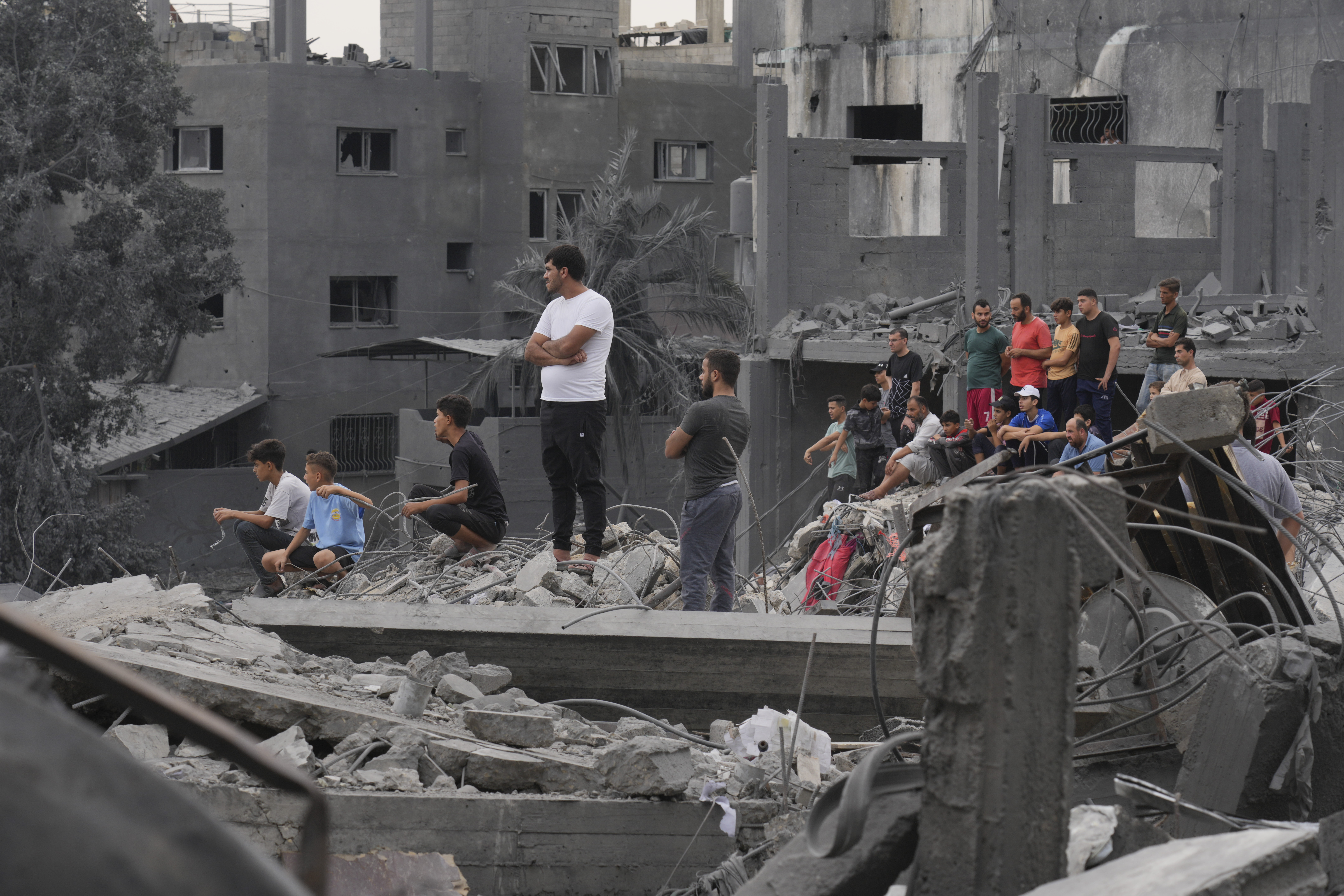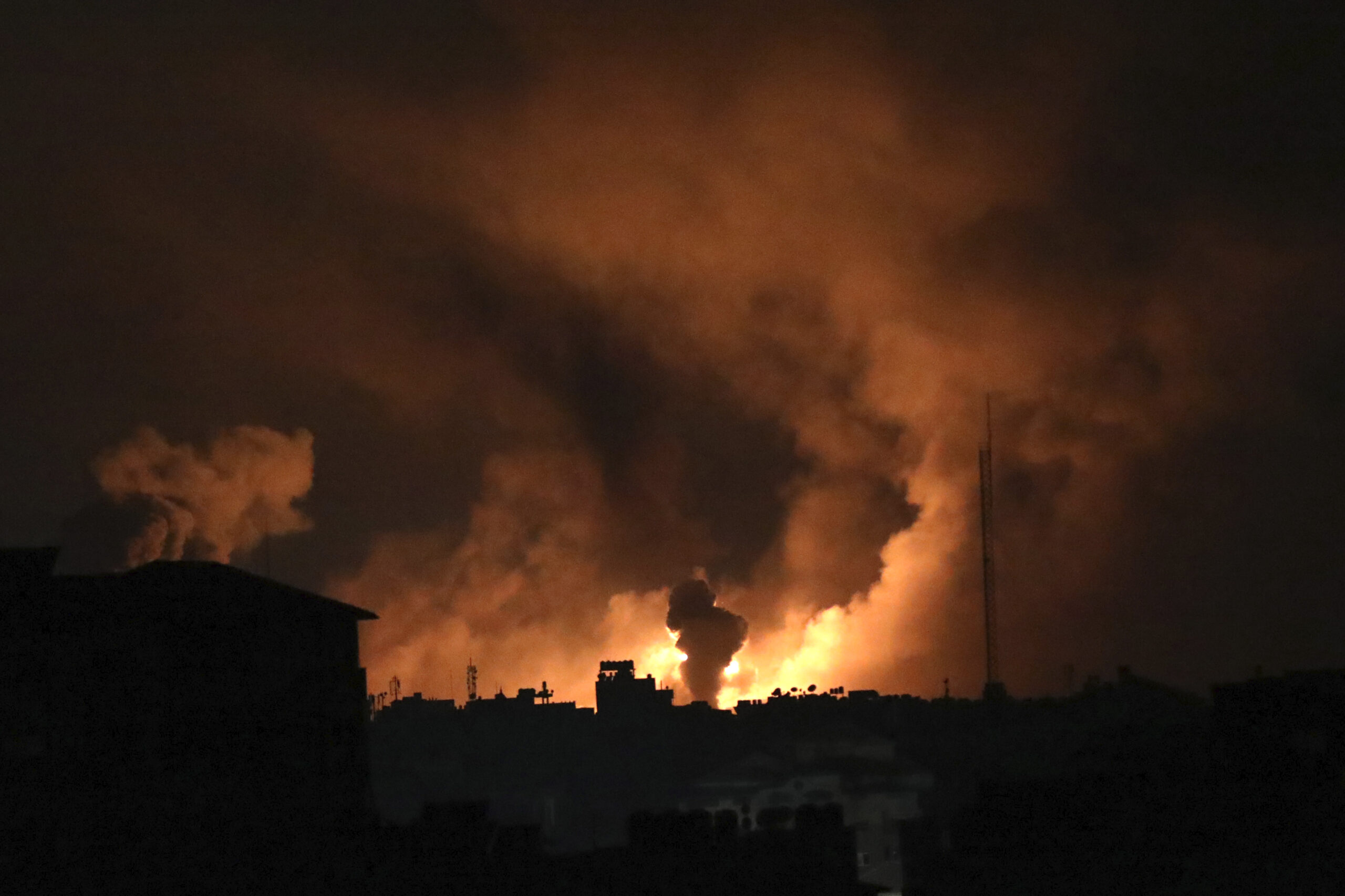
DEIR AL-BALAH, Gaza Strip (AP) – Israel knocked out internet and communications in the Gaza Strip in stepped-up bombardment Friday night, largely cutting off its 2.3 million people from contact with each other and the outside world and creating a near-blackout of information, as the military said it was “expanding” ground operations in the territory.
The military’s announcement signalled it was moving closer to an all-out invasion of Gaza.
Explosions from continuous airstrikes lit up the sky over Gaza City for hours after nightfall. The Palestinian telecom provider, Paltel, said the bombardment caused “complete disruption” of internet, cellular and landline services. The cutoff meant that casualties from strikes and details of ground incursions could not immediately be known. Some satellite phones continued to function.
Already plunged into darkness after most electricity was cut off weeks ago, Palestinians were thrown into isolation, huddling in homes and shelters with food and water supplies running out.
Relatives outside Gaza panicked after their messaging chats with families inside suddenly went dead and calls stopped going through.
“I was so scared this was going to happen,” said Wafaa Abdul Rahman, director of a feminist organization based in the West Bank city of Ramallah. She said she hadn’t heard for hours from family in central Gaza.
“We’ve been seeing these horrible things and massacres when it’s live on TV, so now what will happen when there’s a total blackout?” she said, referring to scenes of families that have been crushed in homes by airstrikes over the past weeks.
Lynn Hastings, UN humanitarian coordinator for the occupied territories, posted on X, formerly known as Twitter, that without phone lines and internet, hospitals and aid operations would be unable to operate. The Red Crescent said it could not contact medical teams and residents could no longer call ambulances, meaning rescuers would have to chase the sound of explosions to find the wounded. International aid groups said they were only able to reach a few staffers using satellite phones.
The Committee to Protect Journalists expressed alarm, saying the world “is losing a window into the reality” of the conflict. It warned that the information vacuum “can be filled with deadly propaganda, dis- and misinformation.”
Israeli military spokesman Rear Admiral Daniel Hagari said ground forces were “expanding their activity” Friday evening in Gaza and “acting with great force…to achieve the objectives of the war.
Israel has amassed hundreds of thousands of troops along the border ahead of an expected ground offensive. Earlier Friday the military said ground forces conducted their second hours-long incursion inside Gaza in as many days, striking dozens of militant targets over the past 24 hours.

The Palestinian death toll in Gaza has soared past 7,300, more than 60 per cent of them minors and women, according to the territory’s Health Ministry. A blockade on Gaza has meant dwindling supplies, and the UN warned that its aid operation helping hundreds of thousands of people was “crumbling” amid near-depleted fuel.
The conflict has threatened to ignite a wider war across the region. Arab nations — including US allies and ones that have reached peace deals or normalized ties with Israel — have raised increasing alarm over a potential ground invasion, likely to bring even higher casualties amid urban fighting.
Jordanian Foreign Minister Ayman Safadi warned on X that the “outcome will be a humanitarian catastrophe of epic proportions for years to come.”
US warplanes struck targets in eastern Syria that the Pentagon said were linked to Iran’s Revolutionary Guard after a string of attacks on American forces. Two mysterious explosions hit coastal towns in Egypt’s Sinai Peninsula, wounding six people. Egypt said they were caused by drones coming from the south over the Red Sea, and Israel blamed Yemen’s Iranian-backed Houthi rebels, who have tried to fire rockets toward Israel since the war began.
The loss of internet and phones deals a further blow to a medical and aid system that relief workers say was already on the verge of collapse, overwhelmed by wounded and running out of supplies under Israel’s weeks-long seal. More than 1.4 million people have fled their homes, nearly half crowding into UN schools and shelters. Aid workers say a trickle of aid Israel has allowed to enter from Egypt the past week is a tiny fraction of what is needed.
Gaza hospitals have been scrounging for fuel to run emergency generators that power incubators and other life-saving equipment.
Hundreds of thousands remain in northern Gaza, unable or unwilling to evacuate to the south as Israel has ordered. Israeli leaflets dropped in Gaza have said those who remain might be considered “accomplices” of Hamas.



















































